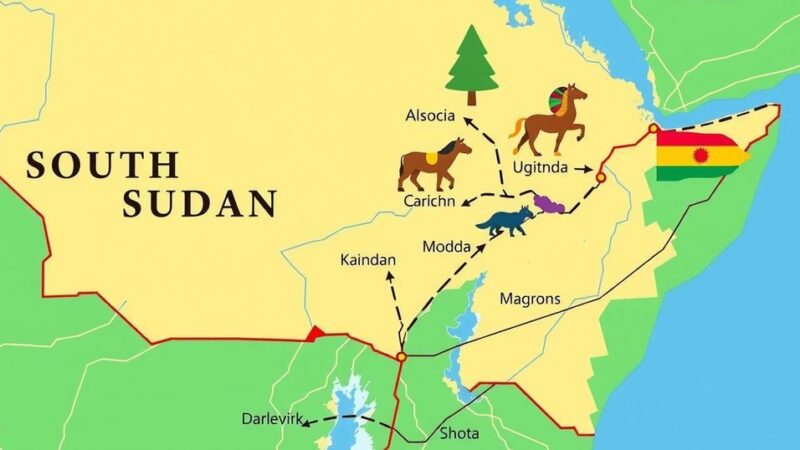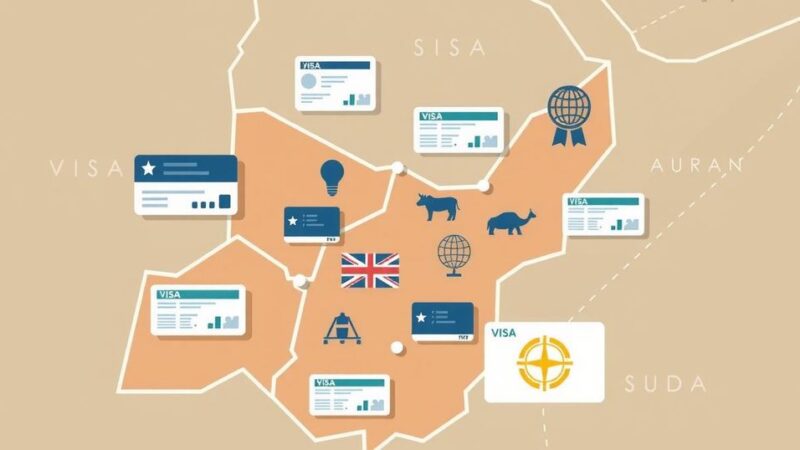Members of the Canadian Foodgrains Bank observed the humanitarian crisis in South Sudan caused by war and funding cuts. After recent USAID reductions, millions are at risk, with many displaced and suffering from hunger. The CFB is responding with projects aimed at providing immediate assistance and improving food security, alongside a $4 million investment from the Canadian government.
Recently, members of the Canadian Foodgrains Bank (CFB) visited South Sudan to witness the ongoing humanitarian crisis exacerbated by war and famine. The delegation, led by Executive Director Andy Harrington and Senior Humanitarian Manager Stefan Epp-Koop, observed the grim realities resulting from conflict and funding reductions impacting critical services.
The recent cuts in funding from the U.S. Agency for International Development (USAID), including a 90-day suspension of activities, have created heightened risks for those reliant on food, water, health care, and shelter. South Sudan emerged as a separate nation in 2011 after years of civil war, and currently faces severe challenges as a result of ongoing conflicts.
The civil unrest in Sudan, which escalated two years ago, continues to severely affect civilians. Epp-Koop emphasized the alarming statistics, noting that 26 million people in Sudan are facing hunger, with 11 million displaced, and one million refugees have sought refuge in South Sudan. The experiences of those fleeing are harrowing, as families escape violence, seeking safety while abandoning their homes and livelihoods.
Higher levels of malnutrition and displacement underscore the dire situation in Sudan, where civilians suffer the consequences of conflict. Funding cuts have crippled health care and educational services, disrupting essential programs for vulnerable populations. Epp-Koop remarked that the impact of USAID cuts is disproportionately severe given its minimal cost to the U.S. government, as international aid constituted less than 1% of its overall budget.
To mitigate this crisis, the CFB is executing various projects aimed at providing immediate food assistance within Sudan and South Sudan. Recently, the CFB announced a substantial investment of $4 million from the Canadian government to enhance humanitarian initiatives in high-need regions, aimed at both immediate aid and long-term food security solutions.
In conclusion, the humanitarian crisis in South Sudan and Sudan highlights the urgent need for international aid, especially in light of recent funding cuts from USAID. The Canadian Foodgrains Bank, through its commitment and partnerships, seeks to alleviate hunger and enhance the long-term stability of affected communities. The significant investment by the Canadian government reflects an ongoing commitment to addressing these grave humanitarian needs.
Original Source: discoverwestman.com






